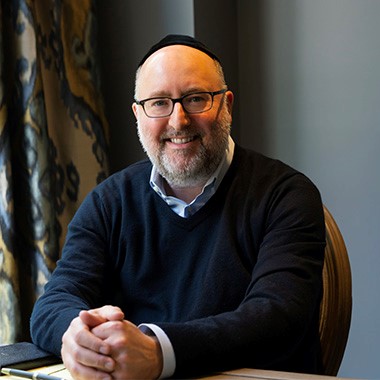This article was originally published in 2018.
There's a verse in the portion Kedoshim with three words we know well - Ve'ahavta Lere'acha Kamocha, “Love your neighbor as you love yourself.” Rav Akiva, the teacher of Rav Shimon Bar Yochai, said that coming to this state of loving the other as we love ourselves is the purpose of all the spiritual teachings and all our spiritual work.
Rav Ashlag writes something about this in The Wisdom of Truth that I have shared and taught many times; however, I have come to a completely new understanding of Ve'ahavta Lere'acha Kamocha and what it means practically. And the truth is that most of us think we know what it means, but I doubt any of us are even close to living it. The problem with that, as the kabbalists teach, is that anything we’re doing besides this is not an aspect of true spiritual work. We must understand, Rav Ashlag explains, that all the other actions, tools, commandments, and teachings are only for one purpose: to get each one of us individually, and the world collectively, to a state of loving the other as we love ourselves. The studies in the Torah are commentaries, explanations, and understandings of this one teaching, and they either bring us to the state of these three words, or they don’t.
However, before we can even come to understand why that's true, we have to comprehend what those three words actually mean, because I think most of us misunderstand them. We think that coming to the ultimate state of caring for and loving others as we do ourselves means to take care of everything that we need, and then, also take care of somebody else's needs. But that's not what this verse says; it does not say, “Love your neighbor also.” It says love them as yourself. It means to share and take care of the other in every aspect the way we take care of ourselves. It means always watching those around us and filling their needs and desires before we fill our own. For example, if we’re about to eat cereal in the morning, before the spoon goes into our mouth, we first look to see if there is anybody else in the world who doesn't have cereal, and run to make sure every one of them then does. Only then can we go back home and have our own.
It’s important to realize how much, I think, we've been deceiving ourselves regarding living this teaching, when we come to see that the countless numbers of books we’ve read, lectures we have heard, actions of sharing we have done, and connections we have made were pointless unless they were not bringing us towards Ve'ahavta Lere'acha Kamocha. And we fool ourselves by saying, “I just need to become a more giving and sharing person,” because when we say that, it is only two words – taking care of, or loving, the other. But there are three words: love and take care of the other as we do ourselves.
There is a concept Rav Ashlag shares that demonstrates this. It talks about what it means for a person who has a servant to take care of that servant. It says, for instance, that if there are two pillows in the house, the master makes sure before he puts his head down on his pillow that his servant has a pillow. It says that the master makes sure before he eats his food, that the servant has food. But most importantly, it says that if there's only one pillow or there's only one steak, the master absolutely has to make sure the servant has it before he does
Rav Ashlag goes on to explain that living this teaching doesn't mean sharing or being a spiritual person. He wants us to realize that when it says love the other as much as we love ourselves, it means, first, always making sure that the others’ needs are taken care of before ours, and second, if there's only one way to fulfill either our own needs or somebody else’s, we have to take care of them first, even if it means leaving ourselves without anything.
This is, I think, so beyond where most of us are. Because everything that we do of a spiritual or sharing nature or in making our connections is actually for only one purpose: to get to that state. So, we have to ask ourselves how many times, in the past year, or even in our lifetime, did we do an action wherein there was something that we needed, and somebody else needed as much as we did, but we gave it to them first.
We are not sharing people just because we live the first two words and care for others also, rather than caring for others as much as we care for ourselves. Yes, in living those first two words, we will be good, spiritual people who others like, because we give when we want to, when we can, or when it's comfortable to us. But we are not living Ve'ahavta Lere'acha Kamocha. Pushing ourselves to first give to somebody who needs what we need has to become a consistent part of our life. And when we really understand this, it is one of those teachings that can truly change not just our outlook, but also how we live every day.
